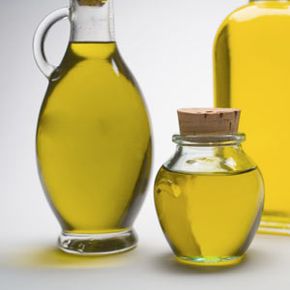Many of us keep a bottle of olive oil on hand for cooking, baking and whipping up homemade salad dressings, but you might not be aware of all the health benefits packed into this oil. Despite what we tend to think about oils -- that they're all bad for our waistline and our heart -- olive oil is not bad for you. In fact, it contains monounsaturated fat, unsaturated fats that are known to bolster cardiovascular health. Including olive oil in your diet can lower your risk of developing heart disease, lower your levels of bad cholesterol and lower your blood pressure. It may also be a beneficial addition to your beauty regimen.
Here we have five ways olive oil, eaten with your favorite foods or applied topically, is good for skin. Let's begin with what olive oil and nonsteroidal anti-inflammatory drugs (NSAIDs) such as aspirin or ibuprofen have in common.
Advertisement
